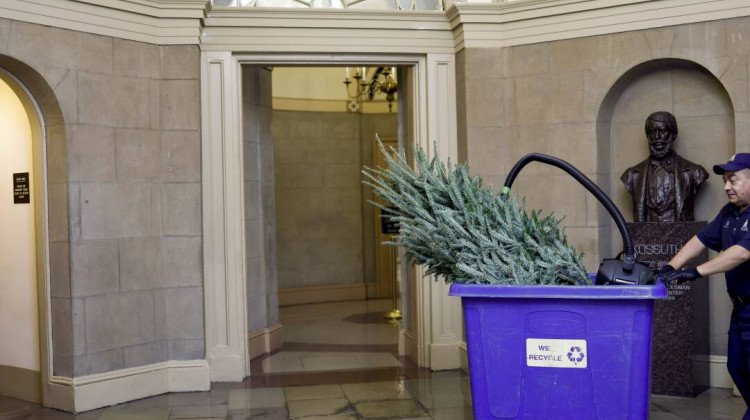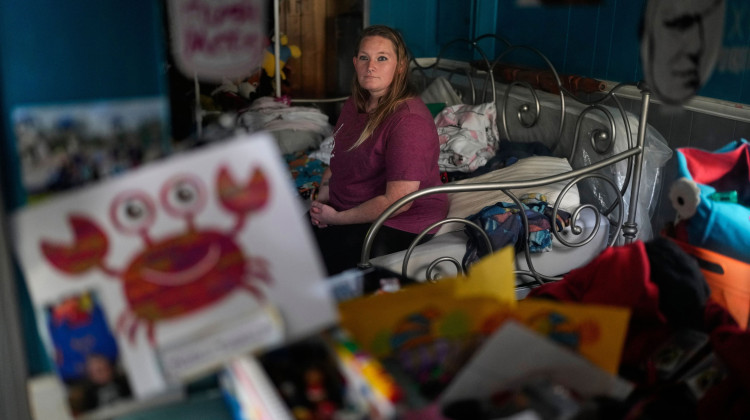
This July 5, 2012 file photo shows Paula Cooper posing for a photograph in Rockville, Ind. Indianapolis police say a Cooper, 45, who was once the nation's youngest death row inmate, was found dead from an apparently self-inflicted gunshot wound in Indianapolis Tuesday, May 26, 2015. She was sentenced to death in 1986 at age 16 after confessing to her role in the murder of a 78-year-old bible studies teacher _ her sentence enraged human rights activists and drew a plea for clemency from Pope John
The Associated PressPaula Cooper, the Indiana woman who became the nation’s youngest death row inmate for a murder she committed when she was 15, was found dead Tuesday of an apparent self-inflicted gunshot wound. Indianapolis police say that the 45-year-old Cooper was found outside a residence on the city’s northwest side.
Cooper was sentenced to death in 1986 at age 16 after confessing to a role in the brutal murder of Ruth Pelke, a 78-year-old Bible studies teacher in Gary. Cooper admitted stabbing Ruth Pelke 33 times with a 12-inch butcher knife in a robbery that netted four youths $10 and an old car.
Pelke’s grandson, Bill Pelke, initially favored Cooper's sentence, but says he had a change of heart when he realized it was what his grandmother would have wanted.
"My grandmother would have been appalled by the fact that this girl was on death row, and that so many people in Northwest Indiana were so full of hate and anger toward her," Pelke said. "I begged God to please please give me love and compassion, for Paula Cooper and her family and to do that on behalf of my grandmother. And it was just a short prayer, but I realized that my prayer of compassion was answered because I realized I no longer wanted her to die, and I wanted to do anything I could to try and help her."
Pelke and Cooper had regular contact while she was in prison, but he said that she was not to have contact with his family while on parole. With her parole period ending next month, however, he had looked forward to talking with her and had hoped to work with his organization, Journey of Hope ... From Violence to Healing.
"She wanted to help other young people avoid the pitfalls that she had fallen into," he said. "I had really looked forward to speaking with her. I tell my story about forgiveness quite often, and with the hope that someday Paula Cooper and I could speak together at restorative justice events. I had thought she was doing well. It's just a total shock to me."
Cooper's death sentence enraged human rights activists in the U.S. and Europe and drew a plea for clemency from Pope John Paul II. In 1988, a priest delivered a petition to Indianapolis with more than 2 million signatures protesting Cooper's sentence.
Two years after her sentencing, the U.S. Supreme Court ruled that sentencing juveniles to death row constituted cruel and unusual punishment and was thus unconstitutional.
Indiana lawmakers later passed a law raising the minimum age limit for execution from 10 years to 16, and in 1988, the state's high court set aside Cooper's death sentence and ordered her to serve 60 years in prison.
Cooper's sentence was reduced due to her behavior in prison, where she earned a bachelor's degree. She was released from prison on June 17, 2013, after spending 28 years behind bars.
The Associated Press contributed to this story.
 DONATE
DONATE





 View More Articles
View More Articles

 Support WFYI. We can't do it without you.
Support WFYI. We can't do it without you.